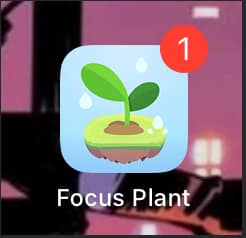Of course, spending the first year of what many deem a defining nonpareil experience of your life being cooped up at home isn’t exactly what I would call the most ideal situation. But as with any experience, one must take the good with the bad and overall, I wouldn’t say it isn’t too bad of an experience. Obviously not worth the whole brunt of the tuition fee that I had to guiltily inform my dad of every semester, but remote learning the entire first year has allowed me to hone characteristics that I never thought would be such a prominent part of my character until now, particularly in relation to academics. I am grateful for this necessary year back home, as it has allowed me to take a look at myself and see just how well the remote learning regime has shaped the discourse of my academics and way of thinking.
1. Stop comparing yourself to others!
It will come as no surprise that the jump from high school to university is a massive one; the jump between year groups as you ascend through the ranks of high school cannot even begin to compare. When tackling an especially tough degree physically separated from your peers is a tall ask. But studying remotely has particularly helped me with one crucial aspect: focusing on your progress and your progress alone. It was a cathartic development in the sense that when surrounded by people who I deemed “smarter” or “better”, I often ended up comparing myself to them, trying to reach their threshold & standards whilst ignoring my own. The common narrative unfolding in my mind during the high school days were often me pondering why I didn’t do as well as Person A, who scored 4A*s during half term exams or as Person B, who must have sacrificed half their soul to Hades in order to get consistent As and A*s. That mindset changed with the dawn of the remote learning, as I could focus more on myself & own personal academic development without being bogged down in others’ successes.
It’ll probably be reiterated to fellow students like yourself often like a broken record – “Don’t compare yourself to others” – but in my experience, there hasn’t been a truth more profound, a truth revealed during the course of my remote learning. Comparisons to others’ progress, to things outside of your control are nothing but shackles to your own progress. What others do is out of your control. Sharpen your own strengths, improve everything that you can within the domain of your control and discard what isn’t within it. Comparisons will end up as nothing but mental blocks weighing you down. Because when the truth dawns on you, you will find that there will always be someone that is better than you at something, and more and more people of the like will crop up the more you progress & develop as your own individual. So bottom line: Be proud of your progress, and progress is progress however small. All the effort you pour into your work is futile if the foundations of it, your very own self belief, is absent.

2. Focus apps help – use your smart gadget to your advantage!
The evolution of technology where you can even get a GBA Emulator on your phone to hop on and play some retro Zelda or Pokemon games mean that your smart gadget that can be used for entertainment will almost certainly distract you if you’re anywhere near it. Combine that with the fact that during remote learning you’ll be home a majority of the time and the need to kill time with your gadget increases tenfold. And understandably so. Why shouldn’t you hop onto your phone and scroll through Instagram or Twitter after a gruelling hour-long session of work? The wonders of technology have allowed for the expansion of such software to ensure our comfort and amusement. But every good thing will have its downside. Speaking from experience, you’ll end up gallivanting down weird rabbit holes that will only end in one certain way: you not doing your work.
That’s why using Focus apps will turn to your advantage! Flip that disadvantage of your smart gadget around and use it to fuel your productivity instead! Focus-based apps are essential especially when you’re on different timezones from the rest of your peers and the only one motivating you to do your work is yourself. The one I use personally is called “Focus Plant”, a Pomodoro technique-based app where the more minutes or hours you work, the more ‘raindrops’ you amass to grow specific plants, where cute, nicely designed plants to grow in your virtual garden is used as an incentive to get your work done. Although it sounds slightly silly, it is a very effective way of ensuring that you complete or at the very least make considerable progress through your daily workload.

3. Rest is productive – just do it right!
Yep, I’ve been there too. Whether it be mountains of cases, statutes, textbook pages or lecture notes that I have to sift through in order to get the work done, taking a much needed break often feels like you’re simply wasting time when you could be blistering through work.
That really is not the case.
A useful but rather overused comparison would be comparing learning to going to the gym. The idea of gaining muscle mass in the gym is the idea of progressive overload (gradually adding more weights after each day) in order for the muscle to feel the stress and therefore increase strength and growth. But in between each training day, it is important that the body gets some rest so that the muscles aren’t overworked to the point where they are inefficient for the next workout.
Studying is completely analogous to this!
There is no point trying to excessively fill up your brain with content where your brain is exhausted. It is important therefore to split up your workload into even intervals which you can manage in digestible bites rather than trying to cram it in! One shouldn’t feel guilt over something they should be doing – recuperation is part of the process and if you aren’t allowing your body rest for the next set of content, there is a high possibility that you will be too exhausted to even begin to fathom your subsequent tasks.
What constitutes as effective rest however is enough of a topic to warrant its own blog post.

And that’s all from me! Overall, whilst I would have loved the opportunity to join the social circles of my friends on campus, I feel that this year of remote learning was absolutely vital for me in the academic sense. Both mind and sense were polished considerably as a result and I can attribute that wholly to both the nature of remote learning and the independence one gets when in university.
And that will be all from me! Until next time!


